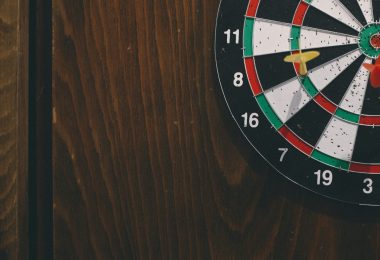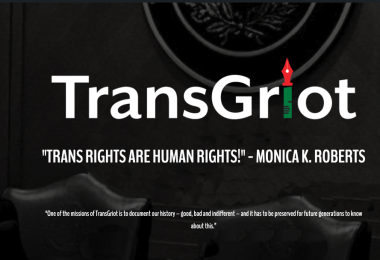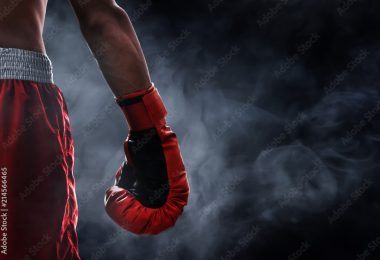(cover photo by Gay Games Hong Kong)
On December 8, British lawmakers signed a letter urging the Football Association (FA) to revise its policy banning athletes assigned-male-at-birth from women’s teams. This followed incidents in November when four women’s league teams withdrew from matches against Rossington Main Ladies, whose roster included trans woman footballer Francesca Needham. Currently, the FA allows adult trans players to play in a league based on their “affirmed gender.” Each application requires athletes to meet specific testosterone levels, and decisions are made on a case-by-case basis. Despite Needham meeting every requirement set out by the FA, she was eventually “forced to quit playing due to perceived discrimination against her.”
In a contrasting move on the opposite side of the world, Gay Games Hong Kong (GGHK) has taken a groundbreaking step by introducing an “All-Gender” category in soccer, which allows athletes to compete together regardless of gender identity.
Gay Games Hong Kong was held on November 3-11 amidst political and COVID challenges. A few sports, including soccer, mahjong, and dragon boating, are among the 18 official sports to have implemented an All-Gender category. Soccer took center stage at GGHK, especially with the involvement of Lotus Sports Club. This national champion team consists of trans and queer Cambodian players, who were featured in the award-winning documentary Lotus Sports Club (2022).
I interviewed Emery Fung, the soccer lead and Director of Diversity, Equity, and Inclusion of GGHK, to discuss how the organizers have experimented with the All-Gender category, setting examples for alternative sporting categories regardless of sexuality and gender.
According to GGHK’s Gender Inclusion Policy, the community sports event is committed to creating “alternative formats” of competition categories such as “mixed gender competitions, specific non-binary competitions, or open competitions with no gender categories at all.” Emery highlighted that GGHK fosters an “inclusion-first” space, encouraging “experiments” and embracing “trials and errors” in categorizing athletes.
Explaining the All-Gender category, Emery clarified that it is designed to be inclusive for athletes of all sexual and gender identities. To respect participants’ privacy and avoid disclosure of their sex/gender, GGHK recommends that teams playing in this category include players from at least two genders without strict enforcement.
Emery distinguished the All-Gender category from a Mixed category, highlighting that the latter still relies on a binary notion of gender. In a mixed-gender soccer match, there is often a specified quota for female athletes, reinforcing presumed binary differences between male and female. The All-Gender category aims to challenge this binary gender and quota system in sports, creating an inclusive space for nonbinary and intersex athletes who may not identify within the traditional gender framework. It also provides a safe space for trans athletes at various stages of transition, preventing them from being labeled based on their sex assigned at birth. The category also departs from an Open category, which often segregates trans women, nonbinary, intersex, and sometimes trans men athletes into a separate, “inclusive” category, away from the women’s category.
As the first visible trans man soccer player in Hong Kong, Emery shed light on the challenges faced by many soccer players in the city who may identify as trans but opt not to undergo the laborious process of changing their gender markers to play on the men’s teams. Despite undergoing medical transition through testosterone use, Emery remains on the women’s team, as his identity document still lists him as female, even though recent changes in the city’s requirements no longer mandate sterilization for trans men to change their legal gender.
Unlike the withdrawal of women’s teams in protest of Needham’s participation, Emery’s choice to play for the women’s team faced minimal opposition from other women players. However, uproar around supposedly (trans)masculine athletes playing for women’s teams persists in Asia, driven by a gender essentialism similar to arguments targeting trans women. Many claims presume unfair advantages for trans men, irrespective of their medical transitions.
For instance, Cambodia’s Lotus Sports Club, a women’s soccer team “dedicated to girls of all sexual orientations,” is consistently criticized for having “boys” playing in the women’s team. Salun, a genderfluid Ph.D. candidate at the University of Hong Kong who works closely with Lotus Sports Club, clarified that the queer Cambodian members of the team don’t neatly fit Western notions of lesbian and transgender. Some players, identifying as “lesbian short hair,” present themselves in opposition to Cambodian societal norms of femininity. Expressing a desire for more masculine appearances, these players cut their hair short and occasionally bind their chests. While socially identifying as men, many do not wish– or have no access– to undergo hormone replacement therapy. In other words, they have not undergone any medical treatments that would alter their hormonal or physiological compositions from their sex assigned at birth. However, the Cambodian sports community often perceives them as embodying more strength and power than cisgender women.
For Lotus Sports Club players, competing in an All-Gender category was an entirely new and unexpected experience. At the Gay Games Soccer 7s, 14 out of 16 teams had at least 2 different genders on the field. Emery praised the soccer tournament as a success in crafting spaces that experiment with alternative sporting categories and challenge today’s stigma against gender-expansive players. He expressed the importance of creating an environment where people of diverse identities can play together without fear of exclusion or anxiety about disclosing their gender.
Although an All-Gender category ideally creates an inclusive space, its implementation comes with challenges. While members of Lotus Sports Club cherished the opportunity to compete overseas with players of different nationalities, abilities, and genders, Salun expressed a common concern about All-Gender categories in sports. They noted that assigned-male-at birth teams often won matches because they were “taller, stronger, and faster” than teams with a majority of assigned-female-at-birth players. (See our prior article on social and cultural factors that grant cisgender boys far more opportunities and resources for developing athleticism than other folks).
Emery acknowledged dissatisfaction among some players due to competitive teams skewing their rosters to maximize their chances of winning. Lotus Sports Club members, according to Salun, had to adjust strategies when playing against teams of cisgender men, attempting to use their smaller size to their advantage but often falling short.
We need thoughtful, nuanced, and inclusive considerations of the role of gender/sex physiology in team sports. While one cannot entirely discount the physiological and social advantages that cisgender men benefit from in many events, team sports require a diverse combination of skills. Emery explained that mainstream soccer training is highly segregated by gender, emphasizing strength and speed for men and strategy for women. An All-Gender category in soccer could potentially bring creative combinations of players from different training backgrounds, enhancing overall athletic performances. Normalizing All-Gender categories could also shift the inequitable cultures through which children and adolescents are introduced to athletics.
Community sports events like GGHK offer opportunities for organizers to experiment and learn about the possibilities and drawbacks of All-Gender categories in sports. Emery and Salun both acknowledged that while the All-Gender category is far from perfect, “we have to start from somewhere.”
Siufung Law (they/them) comes from Hong Kong, is a TEDx speaker, a nonbinary professional bodybuilder, and Ph.D. student at Emory University. They are a trans activist actively promoting the transgender-only bodybuilding competition in Atlanta, GA, organized by the International Association of Trans Bodybuilders and Powerlifters (IATBP).







